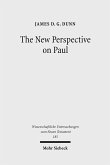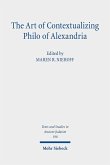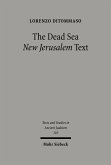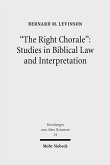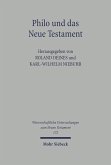David Rudolph's primary aim is to demonstrate that scholars overstate their case when they maintain that 1 Cor 9:19-23 is incompatible with a Torah-observant Paul. A secondary aim is to show how one might understand 1 Cor 9:19-23 as the discourse of a Jew who remained within the bounds of pluriform Second Temple Judaism. Part I addresses the intertextual, contextual and textual case for the traditional reading of 1 Cor 9:19-23. Weaknesses are pointed out and alternative approaches are considered. The exegetical case in Part II centres on interpreting 1 Cor 9:19-23 in light of Paul's recapitulation in 1 Cor 10:32-11:1, which concludes with the statement, 'Be imitators of me, as I am of Christ'. Given the food-related and hospitality context of 1 Cor 8-10, and Paul's reference to dominical sayings that point back to Jesus' example and rule of adaptation, it is argued that 1 Cor 9:19-23 reflects Paul's imitation of Jesus' accommodation-oriented table-fellowship with all. As Jesus became all things to all people through eating with ordinary Jews, Pharisees and sinners, Paul became 'all things to all people' through eating with ordinary Jews, strict Jews (those 'under the law') and Gentile sinners. This Cambridge University dissertation won the 2007 Franz Delitzsch Prize from the Freie Theologische Akademie. Born 1967; Ph.D. in New Testament from Cambridge University; M.A. in Old Testament and M.A. in Biblical Languages from Gordon-Conwell Theological Seminary; currently Director of the School of Jewish Studies at Messianic Jewish Theological Institute in Los Angeles and Scholar-in-Residence at the MJTI Center for Jewish-Christian Relations.
Dieser Download kann aus rechtlichen Gründen nur mit Rechnungsadresse in A, B, BG, CY, CZ, D, DK, EW, E, FIN, F, GR, HR, H, IRL, I, LT, L, LR, M, NL, PL, P, R, S, SLO, SK ausgeliefert werden.



